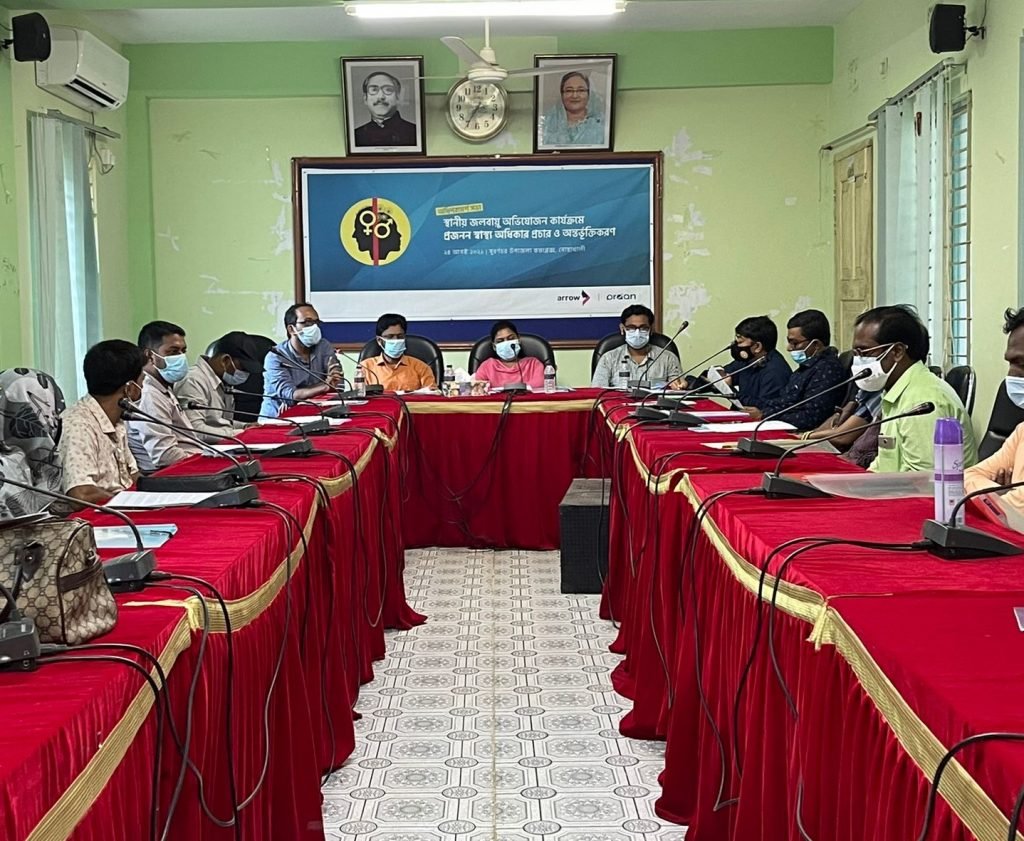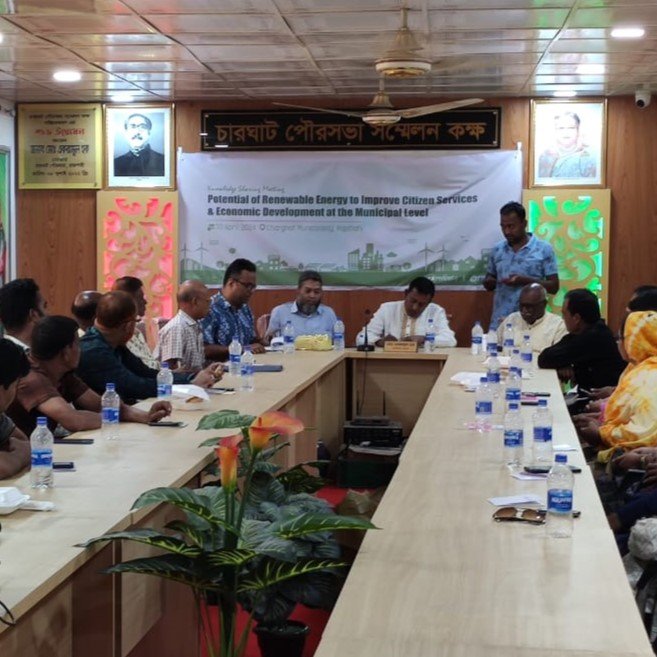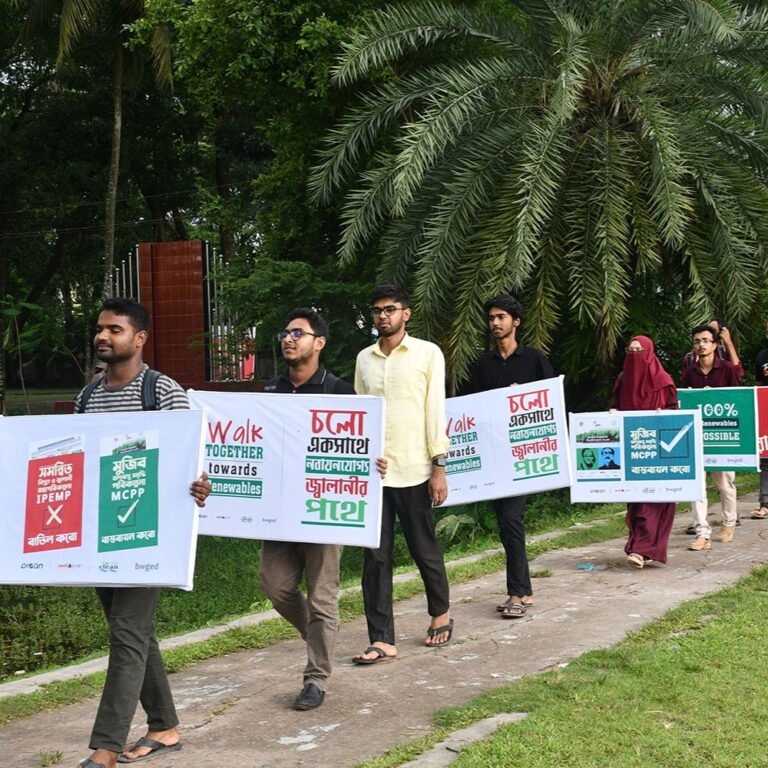
Women and children are most vulnerable to the effects of climate change. Although various public and private initiatives have been taken on climate adaptation, the budget allocation here in this sector is so poor. Therefore, gender and reproductive health must be included in climate crisis mitigation and adaptation measures. The participants demanded these at an advocacy meeting ‘Promoting and Incorporating Reproductive Health Rights in Local Climate Adaptation Activities’ organized by Participatory Research Action Network-Praan on August 24, 2021, at the conference room of Subarnachar Upazila Parishad in Noakhali. Conducted by Nurul Alam Masud, Chief Executive of PRAAN, Ms. Chaiti Sarbabidya, Upazila Nirbahi Officer of Subarnachar was the chief guest at the meeting. Chief Executive Officer of Pran. Umme Salma, Program Coordinator of Praan, presented the report of the survey on Reproductive Health Rights in Climate Adaptation in Rural Bangladesh.
A survey among 120 adolescents and women in Subarnachar Upazila found that none of the participants is having even the primary knowledge about the negative effects of climate change on female reproductive health. 44% of the participants do not know that unhygienic practices on menstruation can lead to long-term physical complications. Even though the rest knew some, 59 percent of them could not name any related disease. Since Subarnachar is a coastal and disaster-prone area, 98 percent of those surveyed think that the provision of sanitary pads during relief and shelter management must be considered and prioritized.
Speakers at the discussion said that both awareness and family education are necessary to protect and practice the right to reproductive health. At the same time, local government, local government and private health care institutions, and concerned officials should sincerely come forward. Dr. Sabbir Ahmed Chowdhury, Residential Medical Officer (RMO) at Subarnachar Upazila Health Complex, said that once a woman is afflicted with a disease caused by unhygienic menstrual practice, she suffers from it for the rest of her life and as a result, her mental health falls also at risk.
The chief guest Chaiti Sarbabidya, Subarnachar Upazila Nirbahi Officer said that the right to reproductive health is not usually discussed due to many old and outdated social norms. She said that due to male dominance in the planning and decision-making process, female needs-oriented support is not given priority or is left out of consideration. She expresses her hopes to work on providing government reproductive health care equipment, especially sanitary napkins, in government relief distribution.
Speakers at the meeting also emphasized the importance of regular reproductive health lessons in educational institutions. They said all the educational institutions need to ensure menstrual hygiene management supplies like sanitary napkins as well as women-friendly toilets. There is no substitute for the government’s goodwill and support to make social awareness activities effective. Md. Monaim Khan- Principal of Saikat Government Degree College, Aminuzzaman Milon- Executive Director of Development Organization Bandhan, Md. Saiful Islam- Executive Director of Sagarika Samaj Unnayan Songstha, Abdul Bari Bablu- General Secretary of Subarnachar Press Club, Paritosh Debnath- Regional Coordinator of Development Organization Nijera Kori, Journalist Mujahidul Islam Sohel were other than that present at the meeting.




